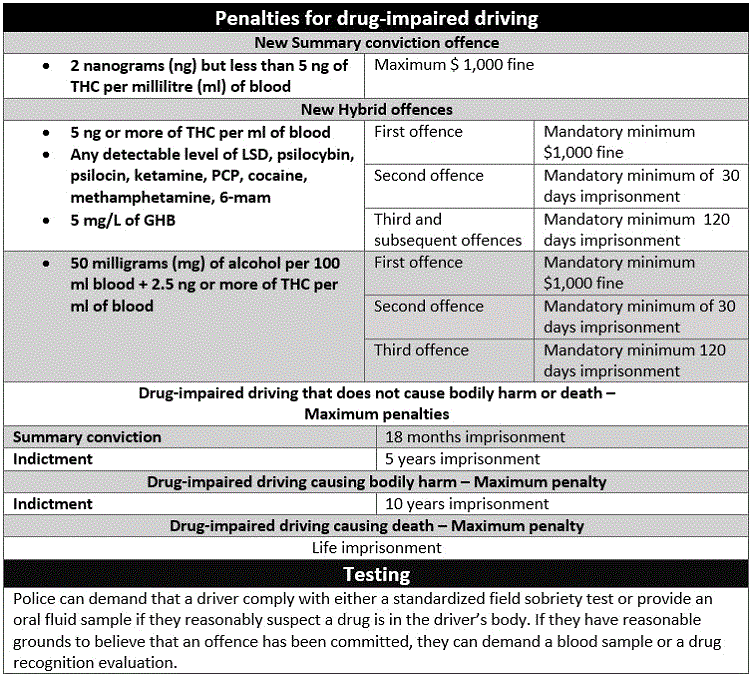Hi there! I want to chat with you about something important – the legal cannabis limit while driving in Canada. In this article, you’ll learn all about the maximum amount of cannabis you can have in your system while operating a vehicle. We’ll cover the specific laws and regulations, as well as the potential consequences if you exceed the limit. So, let’s dive into this topic and ensure we all have a clear understanding of the rules when it comes to driving under the influence of cannabis in Canada.
Understanding the Legal Cannabis Limit while Driving in Canada
In Canada, the legalization of cannabis has raised questions about its impact on various aspects of society, including road safety. It is crucial for all drivers to understand the legal limits and regulations surrounding cannabis use while driving to ensure the safety of themselves and others on the road. In this article, I will delve into the legal cannabis limit in Canada, the importance of regulations, the impacts of cannabis on driving abilities, and other related information.

This image is property of madd.ca.
Defining the Legal Cannabis Limit
To begin, it is essential to define what the legal cannabis limit refers to in Canada. The legal limit for cannabis while driving is measured by the amount of tetrahydrocannabinol (THC) concentration in a driver’s blood. THC is the psychoactive compound found in cannabis that can impair cognitive and motor skills. In Canada, the legal limit is set at 2 nanograms (ng) but less than 5 ng of THC per milliliter (ml) of blood.
The Importance of Cannabis Regulations for Safe Driving
Cannabis regulations are put in place to ensure the safety of drivers on the road. The impaired effects of cannabis can significantly impact a driver’s ability to operate a vehicle safely. It can impair concentration, slow reaction times, alter decision-making skills, and affect coordination. By establishing legal limits, authorities aim to deter individuals from consuming cannabis before getting behind the wheel and minimize the risks associated with impaired driving.
Impacts of Cannabis on Driving Abilities
Numerous studies have demonstrated the negative effects of cannabis consumption on driving abilities. Cannabis use can impair crucial skills required for safe driving, such as tracking moving objects, maintaining lane position, and reacting to sudden changes in traffic. Additionally, it can cause drowsiness and decrease attention span, further compromising a driver’s ability to operate a vehicle safely.
Differentiating between Medicinal and Recreational Cannabis Use
While recreational cannabis use has been legalized in Canada, it is essential to differentiate between recreational and medicinal use when it comes to driving. Drivers who have been prescribed medicinal cannabis by a healthcare professional should be aware of the potential side effects and should only drive if they are certain it does not impair their ability to do so safely. Although medical users may have higher THC concentrations in their blood as a result of therapeutic consumption, they must still abide by the legal cannabis limit to avoid penalties.

This image is property of www.canadianlawyermag.com.
Determining the Maximum THC Concentration Level for Legal Driving
The legal limit for THC concentration in Canada was established based on scientific research to determine the level at which impairment may occur. While the legal limit is set at 2 ng to less than 5 ng per ml of blood, it is important to note that different individuals may be affected differently by THC, and impairment can vary depending on factors such as tolerance, frequency of use, and method of consumption. It is crucial for individuals to understand their own tolerance levels and make responsible decisions when it comes to consuming cannabis and driving.
Methods Used to Measure THC Concentration in Drivers
Law enforcement officers use various methods to measure THC concentration in drivers suspected of impaired driving. The most common method is a blood test, which provides an accurate measurement of the THC levels in a person’s bloodstream. However, it is worth noting that THC can remain detectable in the blood for up to several hours after consumption, meaning that a positive test result does not necessarily indicate impairment at the time of driving.

This image is property of d3ucbh6bp4ctsj.cloudfront.net.
Potential Penalties for Exceeding the Legal Cannabis Limit
Exceeding the legal cannabis limit while driving can lead to severe penalties in Canada. If a driver is found to have a THC concentration of 2 ng or above per ml of blood, they may face immediate roadside license suspension, a fine, and possible criminal charges. Penalties can vary depending on the province or territory, but they generally involve license suspension, mandatory education or treatment programs, fines, and increased insurance rates. Repeat offenders face even more severe consequences, including possible imprisonment.
Strategies for Ensuring Safe Cannabis Consumption and Driving
To ensure safe cannabis consumption and driving, it is essential to follow a few key strategies. First and foremost, individuals should avoid consuming cannabis before driving to eliminate the risk of impairment altogether. If cannabis use is necessary, individuals should allow sufficient time for the effects to subside before getting behind the wheel. It is also crucial to plan alternative transportation methods such as designated drivers, public transportation, or rideshare services when cannabis consumption is involved. Additionally, education and awareness campaigns can play a vital role in informing the public about the risks and consequences of impaired driving.

This image is property of jfcy.org.
Educational Initiatives and Public Awareness Campaigns on Cannabis and Driving
In Canada, various educational initiatives and public awareness campaigns have been launched to inform people about the legal limits and potential dangers of driving under the influence of cannabis. These campaigns aim to increase knowledge and raise awareness about the risks associated with impaired driving, as well as provide resources for individuals to make informed decisions. It is imperative for individuals to stay updated on these initiatives and actively engage in educating themselves about the legal cannabis limit and responsible consumption.
Conclusion
Understanding the legal cannabis limit while driving in Canada is crucial for all motorists. By adhering to these regulations and making responsible decisions, we can ensure the safety of ourselves, our passengers, and other road users. Being aware of the impacts of cannabis on driving abilities, differentiating between recreational and medicinal use, and understanding the potential penalties for exceeding the legal limit are essential steps towards safe cannabis consumption and driving. Let us all commit to being responsible drivers and contributing to a safer road environment for everyone.

This image is property of www.justice.gc.ca.
Recent Posts
Discover how bubble hash is rated on a 1 to 6 scale. From texture and color to aroma and potency, learn the key factors that determine the quality of bubble hash. Whether you're a seasoned cannabis...
Looking to learn about the most popular style of hash? This article explores the different types, from traditional to bubble hash, and reveals the people's favorite. Join us on a journey through the...

